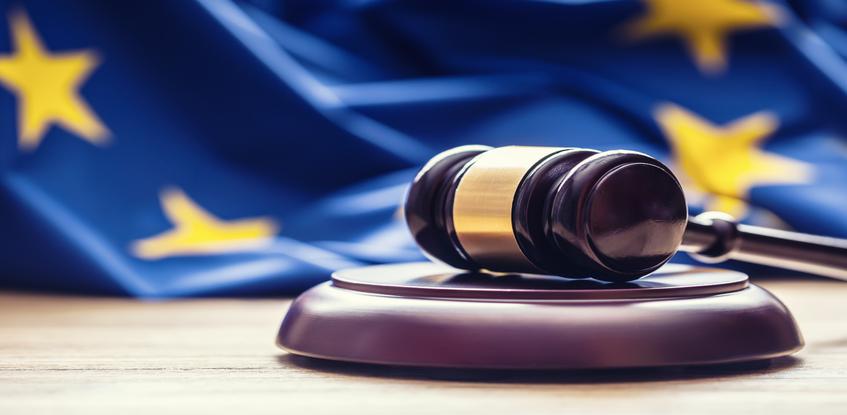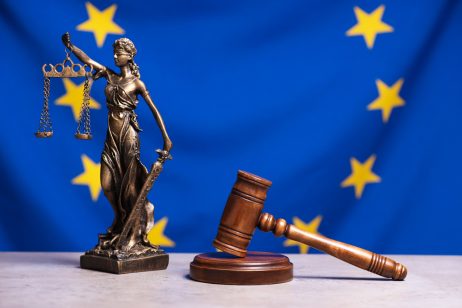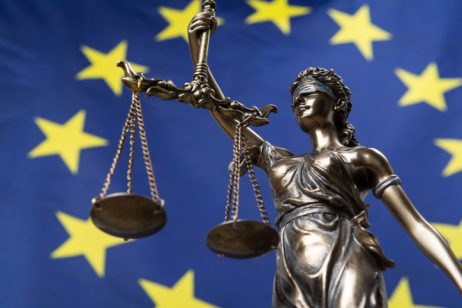The European Union strengthens its sanctions framework: amendments to Regulation (EU) 269/2014 on targeted sanctions and the 17th package of sanctions

Introduction of New Criteria for Targeted Sanctions
On 15 May 2025, the European Union officially amended Regulation (EU) No 269/2014, which lays down restrictive and targeted measures in response to actions undermining or threatening Ukraine’s territorial integrity, sovereignty, and independence.
This new package of measures, adopted through Council Decision (CFSP) 2025/904 and Council Regulation (EU) 2025/903, brings significant adjustments to the existing sanctions framework, in particular regarding the listing criteria and efforts to prevent the circumvention of restrictive measures.
Under Council Decision (CFSP) 2025/904, Regulation (EU) 2025/903 amends Regulation (EU) No 269/2014 by introducing a new listing criterion (m). This criterion targets individuals or legal entities involved in the transfer of ownership, control, or economic benefit of business interests belonging to influential businesspeople operating in Russia — themselves already targeted under criterion (g) — or who have facilitated such transfers.
In addition, the regulation adds a new paragraph “ter” to the first article of Regulation 269/2014. It now specifies that influential Russian businesspeople listed under EU sanctions who claim to have transferred ownership, control, or economic benefit of their assets on or after 24 February 2022 will remain on the sanctions list, unless they provide sufficient, recent, and reliable evidence proving they no longer meet the listing criteria.
These changes are clearly intended to counter strategies that aim to weaken the impact of sanctions — particularly restructuring operations or shifts in control designed to conceal the true beneficiaries or to remove affected entities from the scope of restrictive measures. The objective is to reinforce the effectiveness of the sanctions regime, ensuring that formal changes in ownership or governance structures cannot be used to bypass the measures.
The inclusion of paragraph ter also appears to be a response to recent legal defeats suffered by the Council, where the EU courts criticised its failure to justify maintaining sanctions solely based on past shareholding or control (see, for example: Pumpyanskiy v. Council, General Court, 2 April 2025, Case T‑221/24). This new provision shifts the burden of proof: it is now up to the sanctioned individual to demonstrate that they no longer meet the criteria, rather than the Council having to prove that the original conditions are still met under the new criterion (m).
The requirement for “reliable information” can also be seen as a reaction to the tactics of the Russian authorities, who have made certain data — such as company ownership or control — deliberately opaque or inaccessible (notably on Russian equivalents of Kbis registries), in order to undermine the EU’s ability to substantiate sanctions. In this context, it becomes particularly difficult for a sanctioned person to present alternative documentation that is credible enough to justify being removed from the list.
17th Sanctions Package
In parallel, on 20 May 2025, the EU significantly broadened the list of individuals and entities subject to restrictive measures as part of its 17th package of sanctions, through the adoption of several implementing regulations.
A°) Extension of sanctions under Regulation (EU) No 833/2014 on sectoral sanctions
Regulation (EU) 2025/932 extends the scope of Regulation (EU) No 833/2014 to include 189 additional so-called “ghost” vessels used by Russia to circumvent existing oil export sanctions, bringing the total number of affected vessels to 342.
In the same context, 31 entities accused of assisting Russia in these efforts — including Emirati, Chinese and Turkish companies — have been targeted by restrictive measures.
The regulation also takes note of the Council’s decision to expand the list of items that could contribute to the military and technological enhancement of Russia or to the development of its defence and security sector. Newly restricted items now include chemical precursors of energetic materials and spare parts for Russian-made machine tools.
On this occasion, the Council also renewed the exemption from the oil price cap that allows, due to energy security concerns, the maritime transport to Japan of crude oil originating from the Sakhalin-2 project in Russia.
B°) Extension of sanctions under Regulation (EU) No 269/2014 on individual measures
Regulation (EU) 2025/933 extends the scope of Regulation (EU) No 269/2014 to include 17 individuals and 58 entities accused of being responsible for actions that undermine or threaten Ukraine’s territorial integrity, sovereignty and independence.
This extension follows the Council’s declarations that efforts must continue to further restrict Russia’s ability to conduct the ongoing conflict.
C°) Extension of sanctions under Regulation (EU) 2024/1485 on internal repression in Russia
Regulation (EU) 2025/958 extends the scope of Regulation (EU) 2024/1485 to include 28 individuals accused of participating in human rights violations and in the political repression led by the authorities of the Russian Federation.
D°) Extension of sanctions under Regulation (EU) 2018/1542 on the proliferation and use of chemical weapons
Regulation (EU) 2025/959 extends the scope of Regulation (EU) 2018/1542 to three new entities accused of contributing to the use of riot-control chemical agents on the Ukrainian front, which is in principle prohibited by the April 1997 Chemical Weapons Convention.
E°) Extension of restrictions under Regulation (EU) 2024/2642 on destabilising activities conducted by Russia outside its territory
First, Regulation (EU) 2025/964 extends the scope of Regulation (EU) 2024/2642.
It introduces a ban on transactions involving assets related to Russia’s destabilising activities, such as ships, aircraft, real estate and physical elements of digital and communication networks.
It also enacts a ban on broadcasting activities within the Union by specifically designated media outlets, in order to counter disinformation campaigns conducted by the Russian Federation. On this occasion, it orders the suspension of broadcasting licences of certain media outlets previously not subject to restrictive measures and prohibits the distribution of their content in the Union by any operator.
It clarifies, however, that the above-mentioned media may continue to carry out other activities, such as interviews and investigative work, provided these are not broadcast within the Union.
In this context, Regulation (EU) 2025/965 lists 21 individuals and 6 legal entities newly sanctioned under the above-mentioned provisions.
The European Commission, along with the French and German governments, has already indicated that further measures are under consideration and are likely to be adopted in an 18th package of sanctions, should Russia reject the 30-day ceasefire proposal put forward by Kyiv and its Western allies.
Latest news
EU General Court Rules for the First Time on Damages Claims After the Annulment of Sanctions
The General Court of the European Union (EU) recently delivered a judgment in a case concerning the non-contractual liability of the Union (GC, Pumpyanskiy v Council, T-369/24), brought by a citizen holding Russian and Swiss nationality following the adoption of restrictive measures against him—the individual concerned being listed in Annex I to Regulation (EU) No… Continue reading EU General Court Rules for the First Time on Damages Claims After the Annulment of Sanctions

A Judicial Storm Looms: How the Central Bank Can Challenge the Confiscation of Reserves in the EU
In one week, European Union leaders could approve proposals by the European Commission to “pledge as collateral” Russia’s immobilized sovereign reserves for a “reparations loan” to Ukraine. The vast majority of the Russian Central Bank’s (RCB) assets are located in Belgium (Euroclear), whose Prime Minister has repeatedly warned that transferring these assets for Ukraine’s benefit… Continue reading A Judicial Storm Looms: How the Central Bank Can Challenge the Confiscation of Reserves in the EU
Harmonisation and Clarification of the EU Sanctions Regime: Insertion of the Concepts of “Ownership” and “Control”
Pursuant to Article 2 of Regulation (EU) No 269/2014, concerning restrictive measures in respect of actions undermining or threatening the territorial integrity, sovereignty and independence of Ukraine, natural or legal persons designated in Annex I to that Regulation are subject to the freezing of all funds and economic resources belonging to them. It is also… Continue reading Harmonisation and Clarification of the EU Sanctions Regime: Insertion of the Concepts of “Ownership” and “Control”
Political communication on tax matters, first lesson: Present as exceptional what is meant to become structural.
Nearly fifteen years ago, the 2012 Finance Act introduced an apparently temporary tax, the Exceptional Contribution on High Incomes (CEHR), conceived “in a context of reducing public deficits and restoring our public finances,” intended “to request an exceptional effort from the wealthiest taxpayers.”¹






